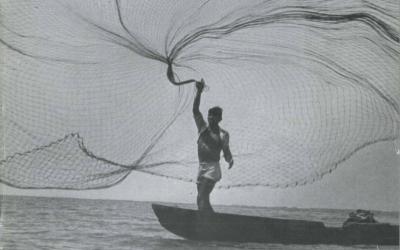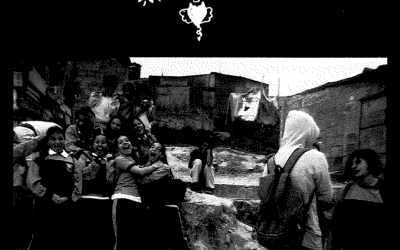The Colombian Colloquium
A Short History
The long-standing Colombian crisis has sparked a growing interest within the U.S.-based academic community. The realization as to the complexity of the Colombian crisis has been accompanied by a growing need to understand the diverse dynamics and challenges faced by Colombia today.
In this context, Colombian graduate students in the Boston area founded the Colombian Colloquium in 1997. The Colloquium’s main objectives have been to link the Colombian community in the Boston area with the Harvard academic community; to learn more about the country by taking advantage of the interdisciplinary exchanges with colleagues and guests; and to contribute to the formation and strengthening of a Colombian academic community while at Harvard and other Boston schools. In biweekly meetings, Colombians and other residents in the Boston area have had the opportunity to attend a series of talks to stimulate discussion on a variety of topics related to Colombia. A wide variety of Colombian and non-Colombian public figures and academic experts have been invited to discuss diverse issues. From the beginning, a conscious effort was made to choose interdisciplinary topics. Talks have covered a wide scope of approaches, including Colombian history, ecological concerns, epidemiology of Colombian violence, questions of territorial decentralization, indigenous rights, Colombian cinema, and issues facing successful peace negotiations.
The experiment has been quite successful. This year the Colloquium will complete six years of operations and, to the extent of our knowledge, is the only permanent forum about Colombia in the U.S. It has attracted successive generations of students and other Colombians in Boston and elsewhere and has helped those interested in Colombia gain a space for critical, interdisciplinary and open dialogue on political, economic, social and cultural issues related to Colombia, a possibility which is not offered in any class or student organization at Harvard or elsewhere.
In addition to talks, the Colombian Graduate Students worked very closely with Colboston, an informal organization of Colombians and Colombianists resident in the Boston area. Through Colboston’s extensive e-mail network, the Colombian Graduate Students at Harvard have reached out into the community by making information about speakers and other events on Colombia available to those who would not otherwise have access to them. The Colloquium also developed ties to the Colombian consulate in Boston, which has supported several events.
The Colloquium has had effects in two directions. On the one hand, the exchange of ideas from different perspectives has provided opportunities for Colombian policy makers, academics and other professionals to learn from each other and from specialists on different topics relevant to Colombia while studying and living in Boston. Upon returning to Colombia, they bring this with them. On the other hand, the Colloquium has broadened the Colombian presence in Boston, both academically and culturally.
Consolidation of the Colloquium has been possible to a large extent due to financial support from DRCLAS and the MIT Colombian Student Association. This has enabled Colloquium organizers to invite scholars from different parts of the U.S. and even from abroad. In addition, several faculty members have provided support.
Looking forward, the colloquium will continue its current efforts to be a space for discussion for those interested in Colombia; to be a place of gathering and support for students working on Colombia; to collaborate with other organizations and universities in order to broaden its scope and activities; and, finally, to become a place for inspiration for more faculty and academics to do work and research in Colombia.
Francisco Ortega, Liliana Obregón, Angelika Rettberg, Enrique Chaux, and Claudia Pineda represent three generations of the Colombian Colloquium. For information about the Colombian Colloquium, please contact Claudia_Pineda@gse.harvard.edu
Related Articles
Editor’s Letter
This is a celebratory issue of ReVista. Throughout Latin America, LGBTQ+ anti-discrimination laws have been passed or strengthened.
Editor’s Letter: Colombia
When I first started working on this ReVista issue on Colombia, I thought of dedicating it to the memory of someone who had died. Murdered newspaper editor Guillermo Cano had been my entrée into Colombia when I won an Inter American…
Photoessay: Shooting for Peace
Photoessay: Shooting for PeacePhotographs By The Children of The Shooting For Peace Project As this special issue of Revista highlights, Colombia’s degenerating predicament is a complex one, which needs to be looked at from new perspectives. Disparando Cámaras para la...



